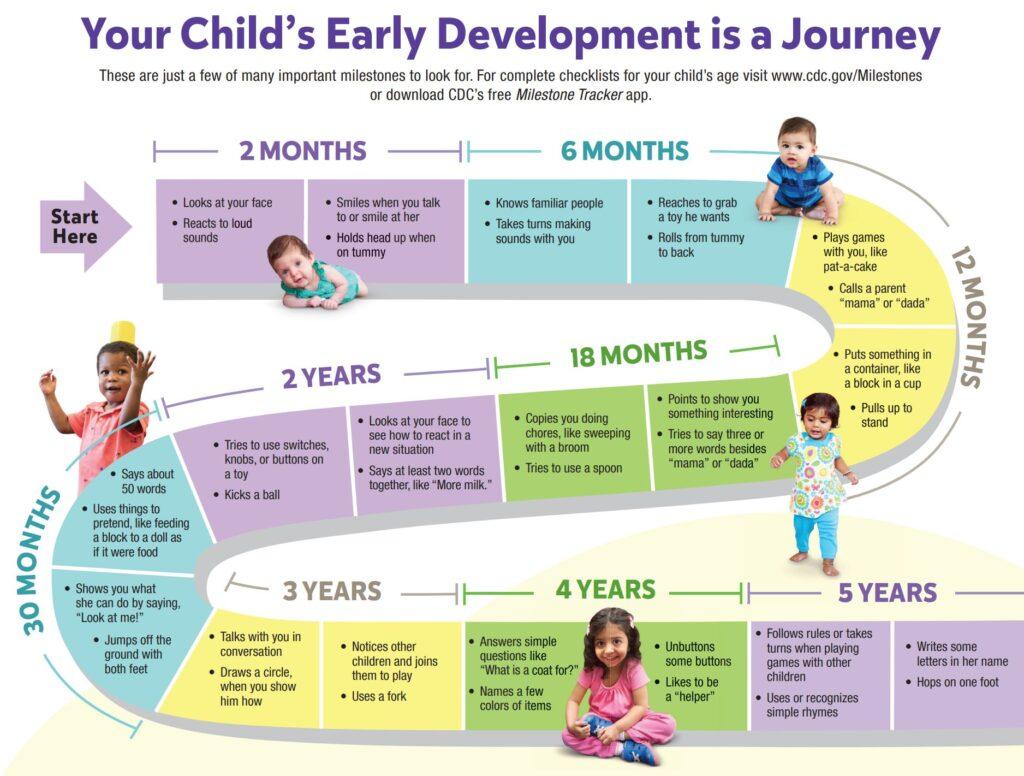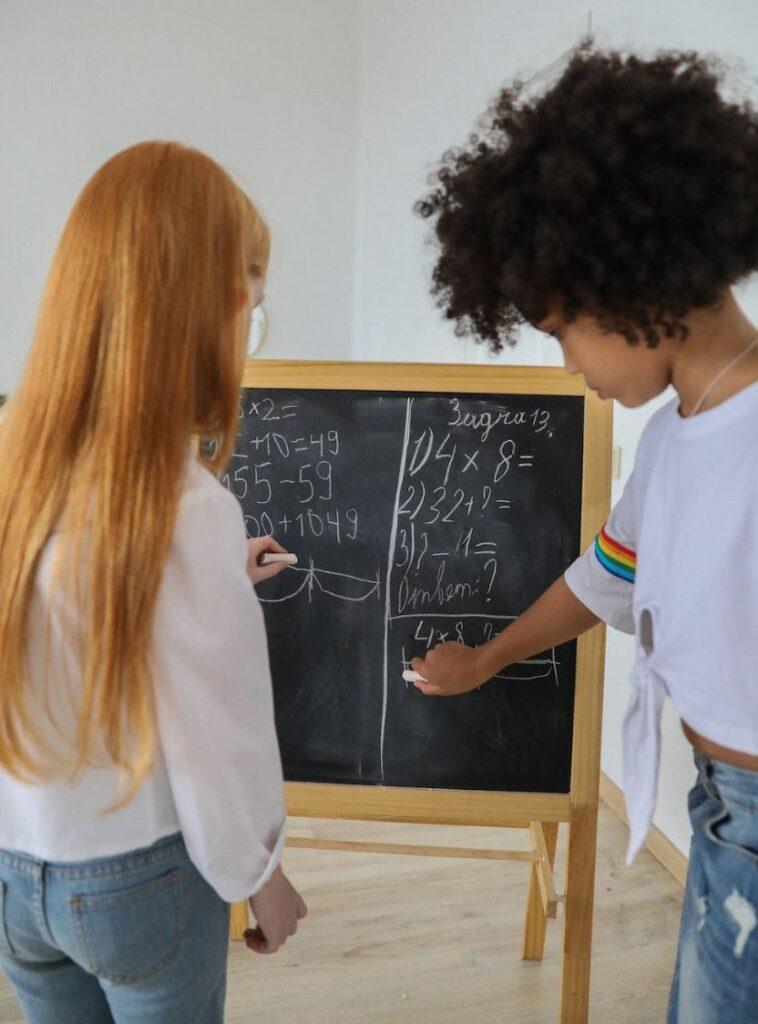In the previous article, we have described the gifted children portrait. And many parents consulted me either their child is gifted. As parents, there’s nothing more we can wish for but to see our children thrive both in life and school. We tend to use the CDC milestones chart to see if they achieved at a particular age. Afterwards, you then start to wonder if your beloved child is a bright child or a gifted child. Many times, both parents and teachers tend to get confused, while differentiating between a bright and gifted children. In this article, we are trying to explain the differences between the two types of children.
Related Reading:
- 8 Type of Intelligence – Every Kid is Gifted
- 6 Signs For a Musically Gifted Kids
- Gifted Child in Family, the Effort Behind the Blessing
- 3 Criteria to Choose Extracurricular Activities For Young Schoolers
- 10 Best Extracurricular Activities For Young Schoolers

Psychology Today points out bright and gifted children have some similarities. They are ahead of their peers in their age group and memories study key points fairly quick. However, there are still some difference between the gifted and bright children.
Table of Contents
1) Bright kids know the answers; Gifted kids ask questions

A bright child will be contented with answering the questions that his teacher throws his way. Whether he memorized the answer from the book, he can answer what the teacher wants to hear.
A gifted child, will not only answer what the teacher asks but will also come up with a follow-up question. The follow-up question is mind-boggling. Even the most talented of teachers have a hard time answering without saying “I’ll check and get back to you later.”
Gifted kids may even just challenging their teachers’ intellect, but they simply want to satisfy their curiosity through these questions.
2) Bright kids are hard workers, gifted kids work efficiently

Another key difference between bright and gifted children is how they approach schoolwork — or any type of work for that matter.
Bright children love to follow their teachers’ instructions to the dot. They devote so much time and effort to doing their homework and studying their lessons for upcoming tests. They are self discipline and may skip social events to focus on study. It may seem like a boring childhood, but bright children thrive in this environment, especially if their teachers acknowledge their success through rewards.
On the other hand, gifted children may seem like lazy kids as you often see them playing video games at home or sleeping at the back of the classroom while their teacher’s droning on and on about their lesson. But, the minute the teacher calls the gifted child’s attention for not listening, he will be able to answer the question correctly. He may even expound on it with concepts the teacher has not discussed.
So, you see, bright kids have the grit and the perseverance to continue studying even if they have a hard time. Gifted kids simply do some light reading, may not do their homework, yet still can top the class.
3) Bright Kids Thrive in a Classroom; Gifted Kids Prefer To Learn On Their Own

There is a fine line between a bright and gifted child regarding their love of learning. And, more often than not, teachers and parents misunderstand this.
For the most part, both bright and gifted children love to learn. They love the new concepts that they can learn from their teachers. Both can start listening to their teacher’s lesson attentively.
But, when the teacher discusses a concept the gifted child already knows, he will suddenly zone out and focus more on looking at the window and imagining things about space and aliens.
On the other hand, the bright child will still listen attentively to their teacher even if he already knows what the teacher’s talking about. He’ll do his best to not zone out and comply with all the seatwork that the teacher assigns after the lecture.
Simply put, the gifted child will only pay attention to things that he’s most interested in, things that he cannot get in the structured environment of a school. He will find a way to find the answer, even if it means doing the task alone.
Hence, it is important that you help your gifted child to choose what extracurricular activity he will join. If that activity isn’t mentally stimulating enough, he will likely get bored again.
On the other hand, a bright kid is content or satisfied with the answers he gets from his teacher and the books he’s reading. He will never deviate from the school curriculum and do his best to master what should be mastered.
4) Bright Kids Have Great Imagination and are Clever; Gifted Kids Experiment

Naturally, kids are very imaginative. With their natural curiosity, they try to make sense of the world based on what they have learned and the what-could-be in that situation.
One distinguishing characteristic that distinguishes gifted children from bright ones is that they’re not afraid to implement the concepts they’ve learned. They love to experiment with those learnings in the real world.
Both gifted and bright children have lots of ideas in their little minds. But, while the bright kid can connect different ideas and find patterns, the gifted kid is already thinking of ways to apply those ideas.
That’s why he can’t sit still once a gifted child has a light-bulb moment. He will get all the materials needed for his little experiment just to prove the theory he’s been thinking.
In simplest terms, bright kids can understand and connect different concepts in their minds and will solve a problem in one way.
On the other hand, gifted children use those concepts to create something. They aren’t afraid to fail and will be able to easily come up with alternative solutions to the problem.
5) Bright Kids Easily Memorize Stuff; Gifted Kids are Good Guessers

The most common way parents and teachers know that a child is academically-gifted is through their intellect. If a kid can memorize concepts that are sometimes way beyond his age, he is bright or gifted.
But, while both gifted and bright children can easily retain information, gifted children need not memorize concepts to answer correctly or understand how a process works.
Think of it this way. Bright children can sometimes have what we know as photographic memory, and they can remember what they have read or heard, depending on their learner type.
But, when they need to find the deeper meaning of the concept they have read or listened to, sometimes they have a hard time doing so because of their limited understanding.
Gifted children, on the other hand, may also have a photographic memory. They can also memorize concepts straight out of the book or lecture they’re listening to. But, when they need to make sense of difficult concepts, they can still arrive at an answer as they not only rely on the information they have memorized.
With their deep understanding of various concepts, they can connect one idea with another and build a hypothesis based on the relationship between those ideas. They can draw conclusions based on their knowledge and combine them with their experience.
6) Bright Kids Repeats Tasks at Least 6-8 Times for Mastery; Gifted Kids Need Only 1-2 Repetitions

To master a concept or task, bright kids need to hear and repeat those tasks 6 to 8 times. If they don’t, they’ll have difficulty drawing out references (in terms of experience and learning) when those concepts are applied in different question types and situations.
On the other hand, gifted kids can master concepts and skills even after hearing or seeing them just one or two times. It’s as if their mind’s saving the information simultaneously while their 5 senses are processing what’s happening.
Thus, it’s not surprising that gifted children get bored easily in a classroom setting. The teacher needs to repeat concepts to ensure everyone in the class gets it, which is mind-numbing for someone who has already mastered what he’s saying.
7) Bright Kids Love Sequence and Order; Bright Kids Love Complexity

Part of the reason why bright kids do well in school is that they love learning concepts in an orderly fashion. Since these kids love to be praised by their teachers, they follow what they tell them to the dot.
Thus, whatever homework their teacher assigns them for the day, they will wholeheartedly work on them at home. Often, they allot a certain time for each subject so they won’t miss out on homework due the next day.
Routine is a bright kid’s best friend.
On the other hand, gifted children don’t follow a specific routine when studying. Since they already know most of the concepts taught to them by their teachers, they will focus their attention more on those areas that are new to them.
With that, it’s not unusual to notice “gaps” in their academic achievement. In subjects they’re highly interested in, gifted kids have high or even extremely high achievements. But, they may not excel as much in subjects they find too methodical for their taste.
And, if they don’t excel in a particular subject area, it’s either they already have mastered concepts taught by their teacher, or they simply don’t like how the subject matter is approached.
Hence, gifted kids will find another way, another solution to the problem that is less labor-intensive and time-consuming. In that way, they can free up more time to study subjects they are highly engrossed with.
8) Bright Kids Love to Fix Stuff; Gifted Kids Invent

Since bright kids love routine, it’s easy for them to fix something. Since they have mastered and memorized the steps to a certain task, they can simply flip the procedure over, or refer to it whenever they need to figure out what’s wrong.
Also, since bright children are great at memorizing, they can copy something accurately. For instance, when their teacher gives them a math problem to solve, the bright kid will answer it using the approach taught to them.
On the other hand, gifted children have already mastered the concepts and steps of a particular task or subject even before their teachers have taught it. They need not refer to the manual for them to develop a solution.
Hence, when their teacher asks them to solve a math problem, a gifted child will use another way of answering it. They will create, or better yet, “invent” a shortcut solution to the problem. He will still arrive at the same answer, just a different methodology is used.
This is where you can say that a particular kid is certainly gifted as inventiveness and creativeness are considered the highest forms of giftedness according to Dr. Brandi Maynard of Gifted Resources.
9) Bright Kids Prefer Company of Same-Aged Peers; Gifted Kids Love Hanging Out With Older Kids and Adults

Ever wonder your child loves hanging out with you or kids older than them compared to their classmates? If you notice this “weird” trait, then it’s highly likely that your child is gifted.
If you recall, bright kids love school. Aside from the structure a school can provide, it also allows children their age to hang out together. And, since bright kids are the same or almost the same age as their classmates, they have the same way of viewing how the world works.
Hence, bright kids easily get along with their peers, preferring their company over adults.
With their advanced intelligence, gifted children find it hard to befriend their classmates. They have different interests, and the other children might not easily understand where the gifted child’s ideas come from.
So, more often than not, classmates of gifted children often misunderstand them. Similarly, gifted kids may find their classmate’s interests boring.
With that, gifted children will seek the company of adults like their teachers to get the mental stimulation they crave. For gifted kids, the more complex and thought-provoking the topic of a conversation gets, the more interesting it is.
10) Bright Kids are Good Followers, Gifted Kids are Leaders

Photo Credit: Freepik.com
One of the signs that your child is a gifted kid is his aptitude for solving problems. Though bright and gifted children can think of strategies to solve a particular problem, gifted kids can pull up an idea even in the most complex situations.
As mentioned earlier, bright children thrive in routine, structure, and instructions coming from their teacher. They will follow what their teacher has told them to do, making sure not to miss out on a single direction given to them.
And, if the teacher reverses the process and does not give instructions for a certain activity, the bright kid will feel out of sorts. Since his teacher did tell him what to do, the bright kid will have a much more challenging time developing a solution to the scenario given to them.
But, gifted children thrive in complexity. Their innate ability to make inferences from a particular situation helps them develop an original solution without their teacher’s instructions.
Gifted children will most likely jump to the task and may or may not ask questions later. Gifted kids enjoy searching for clues to arrive at the answer or solution. Since they love learning, looking for a solution is simply part of the process.
Final Thoughts from Pragmatic Lifestyle
There is no advantages or disadvantages for being gifted or bright. The information is only for parents to have more understanding and anticipate their children’s behavior. Both bright and gifted are the truly wonderful things.
About me
Hi, there. I am Lin. Together with my husband and two kids, we live in the beautiful Netherlands in Europe. I am dedicated to self-development, creating quality time for the whole family, and fully supporting kids with their potentials and possibilities with all I have learned from engineering, MBA, and 10+ years of working experience in the energy sector.


